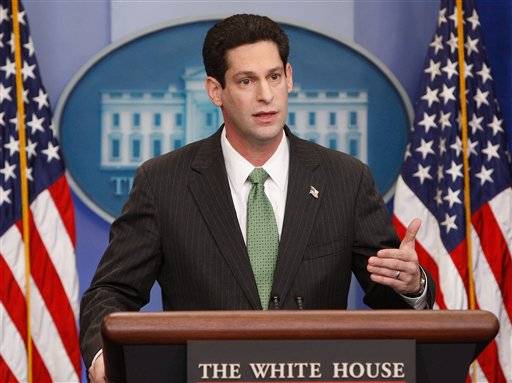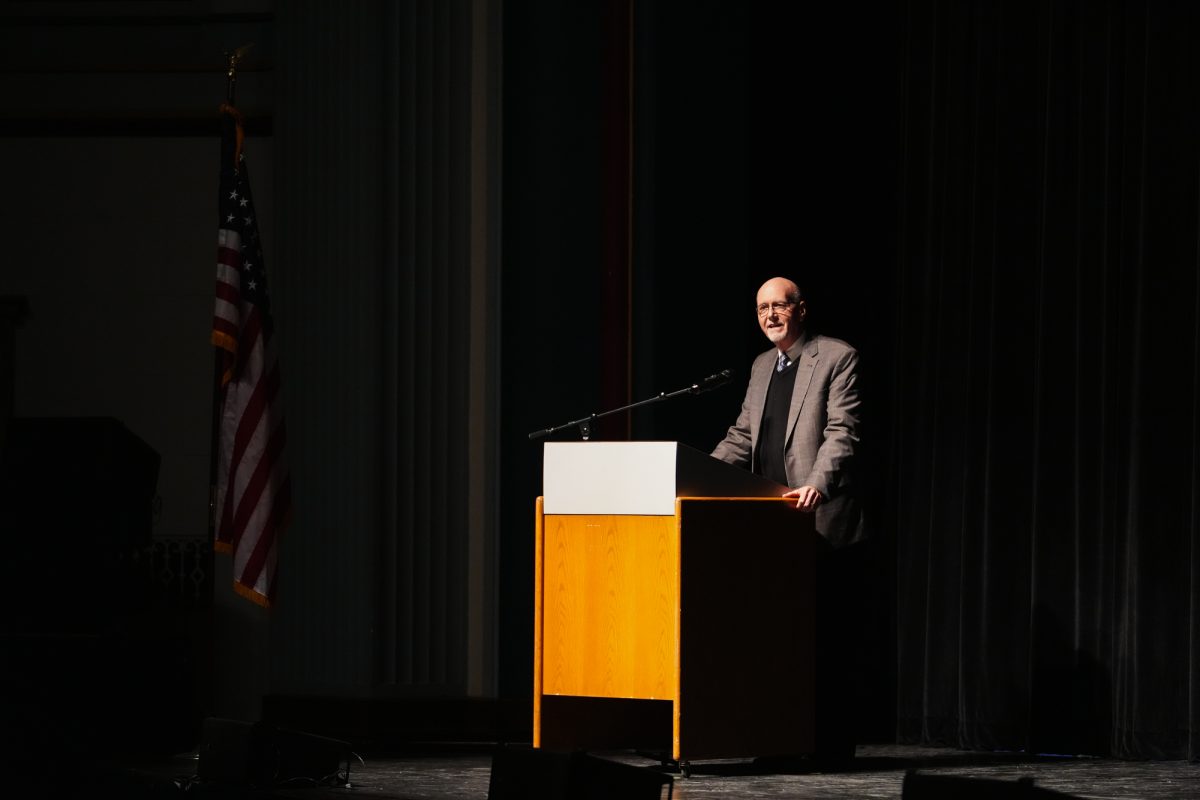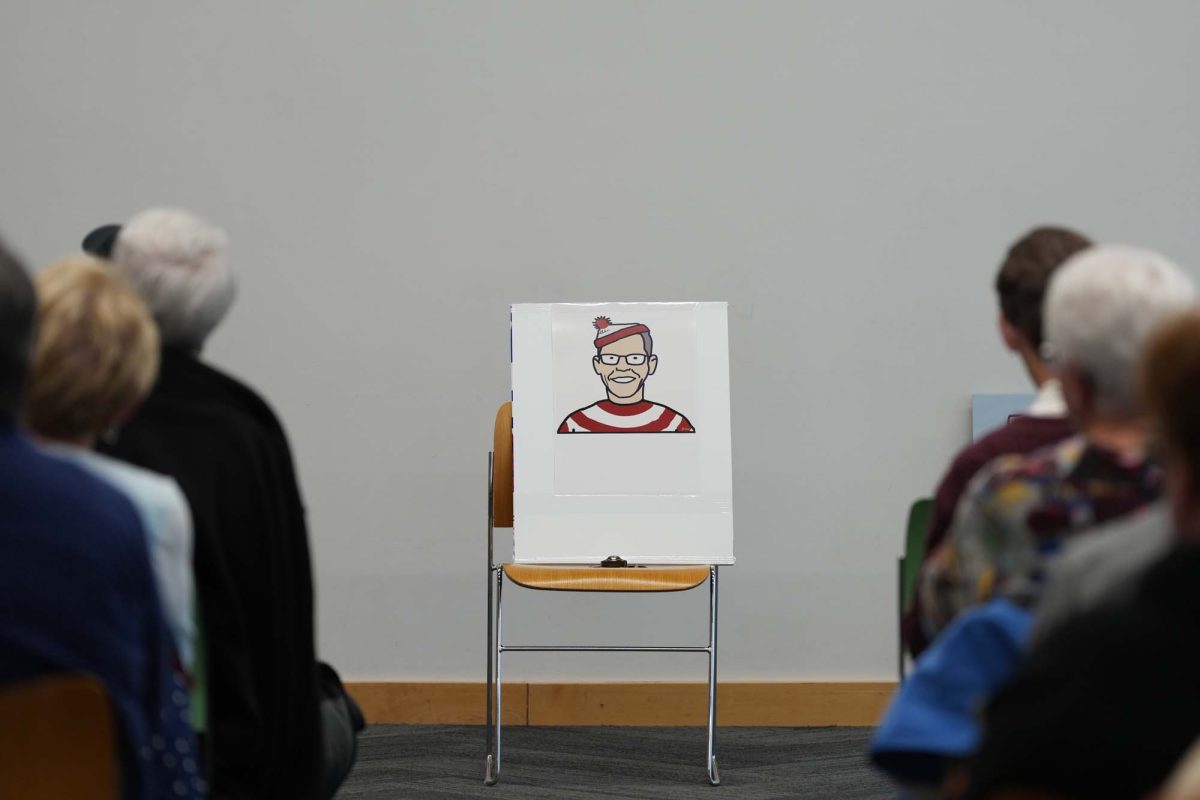Hill sources: Democrats, White House get auto deal

White House Deputy Chief of Staff Joel Kaplan briefs reporters, Wednesday, Dec. 10, 2008, at the White House in Washington, about negotiations on a bill to provide government assistance to the financially ailing auto industry. (AP Photo/Ron Edmonds)
December 10, 2008
WASHINGTON (AP) — Majority Democrats and the Bush White House have finalized a deal to spend $14 billion on emergency loans for struggling U.S. automakers, congressional officials said Wednesday. Strong opposition lingered among some Republicans.
The White House did not go as far as to say the deal was final, although it did report “very good progress.” The measure could see a House vote later Wednesday and be enacted by week’s end. Then, money could be disbursed within days to cash-starved General Motors Corp. and Chrysler LLC, while Ford Motor Co. — which has said it has enough liquidity to stay afloat — would be eligible for federal aid.
It would create a government “car czar” to dole out the loans, with the power to force the carmakers into bankruptcy next spring if they didn’t cut quick deals with labor unions, creditors and others to restructure their businesses and become viable.
Congressional Republicans, left out of negotiations on the package, are expressing grave reservations and may seek to block it.
Sen. David Vitter, R-La., promised to filibuster the measure, which could delay a final vote for days.
He said the package has an “ass-backwards” approach to curing what ails the U.S. auto industry— giving carmakers money immediately, and only later demanding that they restructure.
Nevertheless, Democratic leaders were confident enough that a bill could advance that they set a procedural vote for the House floor later Wednesday. Even still, Sen. Mitch McConnell, the GOP leader, said in late morning that his side hadn’t seen the measure yet and wouldn’t agree to votes on the measure Wednesday.
“Republicans will not allow taxpayers to subsidize failure,” McConnell said, although he added that the auto situation would be addressed by the end of the week.
The congressional officials revealed agreement on a bill only on grounds of anonymity because the deal has not been formally announced.
At the White House, Deputy Chief of Staff Joel Kaplan said the administration and Congress have made “very good progress on a conceptual agreement.”
“We’ll be talking retail to individual senators to win their support,” said Kaplan, who said he expected President George W. Bush to lobby Republicans to vote for the package.
Kaplan said it was critical that the legislation have a clear definition of what is long-term viability for the companies.
A breakthrough came when Democrats agreed to scrap language — which the White House had called a poison pill — that would have forced the carmakers to drop lawsuits challenging tough emissions limits in California and other states, said congressional aides.
Environmentalists already were livid that the measure draws the emergency loans from an existing loan program to help carmakers retool their factories to make greener cars.
Kaplan also said the president was dispatching Chief of Staff Josh Bolten to Capitol Hill to make the case for the legislation with skeptical Republicans.
Kaplan said the Bush administration would work with President-elect Barack Obama’s team on choosing the so-called “car czar,” acknowledging that Bush’s tenure ends in 41 days and the automakers’ woes will continue well into 2009.
“We expect to work closely with the president-elect’s team on what is the most effective means of implementing this legislation,” Kaplan said.
Asked about the role of the “car czar,” Kaplan said: “This is not somebody who’s going to run the companies. This is someone who is going to bring them around the table, knock heads.”
“This is a bridge to either fundamental restructuring or bankruptcy,” he added. “They either have a long-term plan that’s viable or we get our money back. And if we call our money back, which is required under this bill, then those firms are not going to be able to survive.”
Getting 60 votes for an agreement, with many senators expected to be absent for the emergency, postelection debate, could be tricky.
Sen. Carl Levin, D-Mich., an ally of the auto industry, said, “This gets us to the 20-yard line, but getting over the goal line will take a major effort, particularly in the Senate.”
He called for Bush and President-elect Barack Obama to lobby personally for the auto bailout.
Obama defended the auto bailout as necessary given the threat a potential Big Three collapse could pose to an already battered economy.
“As messy as it may be, I think there’s a sense of, ‘Let’s stabilize the patient,’ ” he said in an interview published in Wednesday’s editions of the Chicago Tribune and Los Angeles Times.
He called the auto industry’s plight — lackluster sales, choked credit and widespread economic turmoil — “the perfect storm.”
A key compromise on the measure came when negotiators reached a compromise to require the czar to revoke the loans and deny any further federal aid to automakers that don’t strike restructuring deals by next spring. Democrats had proposed giving the overseer that option but not requiring it.
The measure would attach an array of conditions to the bailout money, including some of the same restrictions imposed on banks as part of the $700 billion Wall Street rescue. Among them are limits on executive compensation, a prohibition on paying dividends and requirements that the government share in future profits and taxpayers be repaid before any other shareholders.
Also included in the plan is a requirement that the carmakers taking federal aid get rid of their corporate jets — which became a potent symbol when the Big Three CEOs used them for their initial trips to Washington to plead before Congress for government assistance.
The measure also includes a bail out of some of the nation’s largest transit systems. The bus and rail systems could be on the hook for billions of dollars in payments because exotic deals they entered into with investors — which have since been declared unlawful tax shelters — have gone sour with the collapse of American International Group Inc. and other financial institutions.





